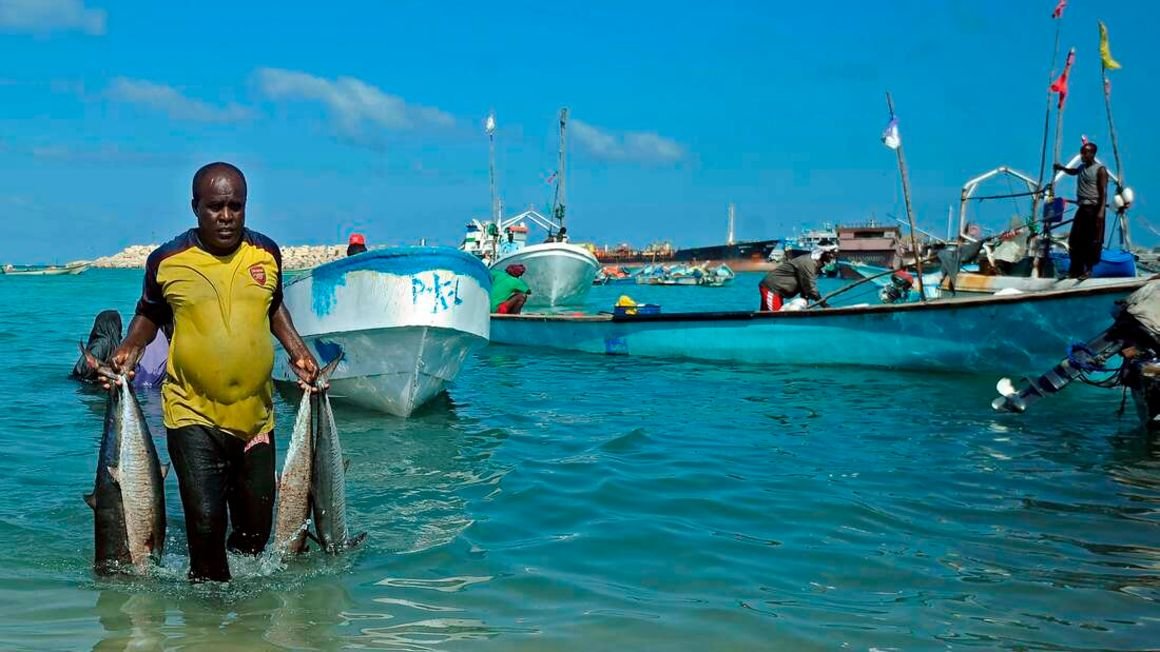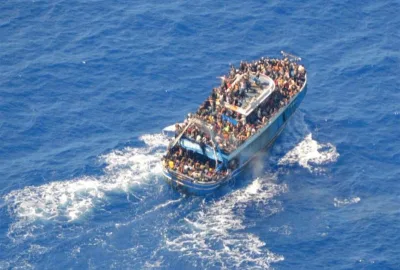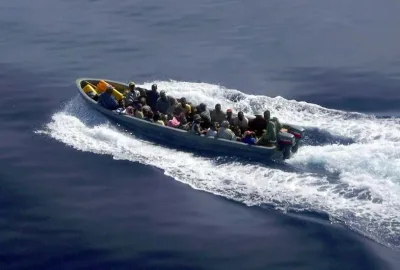Somalia says its lucrative fishing resources will be completely shielded from looters once a new law…

Somalia says its lucrative fishing resources will be completely shielded from looters once a new law comes into force, and which will provide uniform regulation in all parts of the country.
A draft law by the Ministry of Fisheries and Marine Resources seeks to bring on board all state agencies at federal government level as well as the agencies in federal states, unifying, for the first time, what has been chaotic regulation of fishing grounds for nearly four decades.
Mohamud Sheikh Abdullahi, the director-general for Fisheries in the ministry told the Nation that the country’s nascent federal structure where some states were more powerful than others had given looters the opportunity to fish illegally in Somalia’s waters, as there had been no standard licensing conditions.
“Somalia has drafted a new fisheries law that will address the gaps in the federal power sharing system and also address the fisheries management, deal with corruption, licence system and environmental protection,” Mr Abdullahi said on Saturday.
Federal and state powers
“We are also strengthening the intergovernmental coordination within our country and with other maritime agencies. The confusion caused is because of the new federal structure which, as you may know, has not yet been updated to determine where federal and state powers begin and end.”
The official spoke weeks after a report by the Global Initiative against Transnational Crime [GI-Toc] criticised Somalia’s disjointed regulations for fuelling illegal fishing. The report said it had found that vessels from as far as Iran, Yemen and South East Asia had “routinely” engaged in Illegal, unreported and unregulated fishing in Somali waters.
The document indicated that the problem had been worsened by some federal states in Somalia issuing documentations that were not recognised in other parts of Somalia and that some Somali agents themselves had aided foreign fishing vessels to obtain permission or register fishing vessels through forging documents, at a bribe.
Some of the officials mentioned by the Global Initiative report have kept mum, fuelling some public displeasure.
Somalia has struggled to guard its fishing grounds amid the collapse of state institutions after the fall of Siad Barre’s regime in 1991.
With the emergence of federal states, the stronger ones went on to start licensing fishing vessels, even though it is the federal government which can verify whether vessels engage in illegal fishing.
Rise of piracy
At one time, the desire to guard those fishing grounds led to the rise of piracy, which has since been brought down by a coalition of maritime countries patrolling the shared Indian Ocean.
Somalia’s Fisheries ministry admitted there had been problems, especially in policing its waters, standardising vessel registration and bringing to book those who engage in illegal fishing, but said it was compensating by reaching out to global maritime and fisheries organisations to help sign transparent fishing agreements and licenses, arguing it was in fact a requirement for it to continue meeting credit conditions by the IMF and other lenders.
The Horn of Africa country has the continent’s longest mainland coastline, estimated to be about 3,300 kilometres. It also has some three million squares kilometres of the Exclusive Economic Zone, which is the outward area of sea considered the territory of Somalia and which is rich in unexploited fish and fossil fuel.
The country’s fishing resources could earn Somalia some $135 million a year, according to the ministry. Lack of capacity, however, meant that the fish remains unexploited or was looted by foreign vessels as the country plunged into civil war.
Since 2018, Somalia had had a resource sharing agreement on marine resources and started implementing a registration system for vessels.
The Ministry said there had been hiccups but the system is already providing credible foreign fishing fleets “the opportunity to legally and sustainably develop the last untapped fishing grounds in the Indian Ocean”.
“The vessels that the report mentioned [of running illegal fishing] is considered legal in other parts because they allow those kinds of vessels.
“It is illegal for a federal state to issue [fishing] licences to Somali private sector. Somalia’s federal government is the only entity capable of determining what IUU (illegal, unreported and unregulated fishing) is and that is what we are doing.”
Already bearing fruit
The new law will probably be implemented after elections scheduled to run between July and October. But the official says the licensing system is already bearing fruit.
Officials say the number of fully licensed vessels has grown from below 30 in 2018 to 55 in 2021.
The Fisheries ministry says it earned $3 million in 2020 from fees and projects annual revenue from fishing licence sales to increase to $10 million once the system and law is fully operation, up from $1 million in 2018.
But the federal government and federal states may still need to discuss how to implement the revenue sharing formula, after some states defied an earlier deal on natural resource sharing.







